
|
The New Year 2024 rest |
Advertisement:


| 20 March 2010 - Second Spring festival „Navruz“ in Germany |
|
For all the nations spring is the time of nature revival and renovation, the period of expectations and hope for peace between people, for bumper harvest in the fields and gardens and good increase in livestock, for love and consent in family. And all these expectations are embodied in spring festival Navruz. 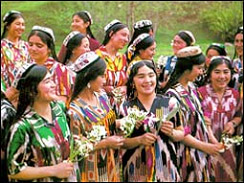 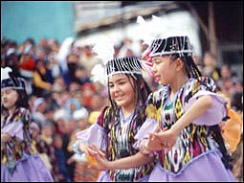 In Persian, Navruz means “new day”, or “a new day of the new year”, to be precise. This day is celebrated on „March 21st“, which is on the day of vernal equinox, and it symbolizes the beginning of a calendar year in such countries as Iran, Afghanistan, in Kurdish regions of Iraq and Turkey, as well as in some countries of Central Asia. …Navruz is considered to be a state holiday, however the official New Year Day is celebrated in accordance with the European calendar. At present hundreds of millions of people throughout Occidental and Central Asia, Near and Middle East celebrate the ancient holiday of Navruz. Sometimes it is mistakenly related to Muslim holidays. And though the holiday is really celebrated throughout the Muslim world, it has nothing to do with Islam. It is already proved that this festival is inherited from the ancients. Suffice it to say that in the 5th century B. C. Iranian people were familiar with this festival. This is how ancient Greek historian Strabonus described the celebration of Navruz: “Since ancient times until today people of Transoxiana have assembled in the Temple of Fire on this very day. This is the most sacred holiday during which traders close their shop and craftsmen stop their work. Everybody is having fun, treating each other to the drinks and food that were touched by fire”. 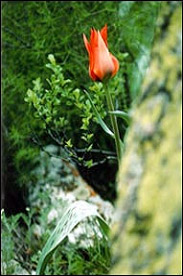 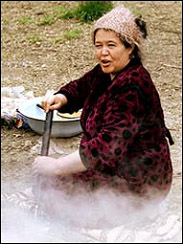 The earliest data about celebration of Navruz can be traced in Chinese “Chronicles of Tan Dynasty”, which date back to the 7th century. From the times this holiday originated, Navruz was mainly the festival of masses; spontaneous and basically pagan. And it has been preserved as such up to the present days. During this festival there are no official events such as parades, demonstrations, meetings or marches. … but continue to cook sumalaq, the symbolic Navruz dish. It is its mass character when each participant of this event becomes a part of the general elation that has prevented Navruz from falling into oblivion. …Navruz gained huge popularity. It is significant that one of first acts of the new state authorities imparted a status of nationwide state holiday to Navruz. As any celebration of the new year day, Navruz is, first of all, a merry festival. But unlike European New Year Day, Navruz is celebrated in the daytime. It is a customary practice for people to gather for hashar (team-work) few days before the beginning of the festival. During hashar they tidy up and decorate their cities and villages, because it is natural enough to celebrate the holiday in clean and tidy surroundings. By the time the celebration starts all cooking of holiday food is to be completed too. Various and plentiful meal is the height of the festival, which is held in the hope of the coming profitable and bumper-crop year. On the day of the festival different national dishes are served up: pilov (meat dish with rice), shurpa (vegetable soup), boiled mutton or beef, kuk-samsa (patty with spring onions) and sweet nishalda (dessert made of eggs whisked with sugar). But the culmination of the holiday is sumalaq – a ritual meal, which citizens of our republic can taste once a year, whereas the guests, very likely, can do it once in their life. Sumalaq is made from flour and wheat sprouts, which are the symbols of eternal life. Sumalaq-making is a long process: it is cooked for 24 hours until it becomes a viscous mass. Special large pots are used, with round small stones covering the bottom of the pot to protect the sweet mass from getting burnt. Cooking of sumalaq as an ancient ritual has its own peculiarities; traditionally only women used to make it. It is notable that sumalaq-making process is accompanied by women’s singing of special short verses, dancing, joking, telling either true or cock-and-bull stories. The ready-to serve sumalaq becomes a good treat for relatives, guests and neighbours. Local people believe that it is a good omen if you find a small stone in your sumalaq dish: it means you will be lucky and healthy till the next Navruz. Meanwhile, in the parks and squares surrounded by blossomed trees the general merry-making starts. The traditional personages, Bahor-Hanum (Spring), Dehkan-Bobo (Old farmer), Momo-Er (the Earth), accompanied by musicians, drive along the streets in the car decorated with the flowers, and invite everybody to the central square, where the main celebration takes place. Following old traditions, Navruz is the day when people forgive each other’s resentment; make it up with each other. Many people call on those who are poor, lonely or disabled, take care of them, and give them small gifts. In fact, the celebration of Navruz lasts the whole month. 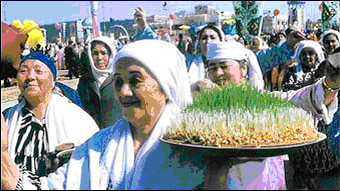 …People of all nationalities… celebrate Navruz with genuine enthusiasm, while the guests of our country participate in the festival with the utmost interest. There is an interesting precept in “Navruzname”… who celebrates and has fun on the day of Navruz will spend his life cheerfully until the next Navruz celebration”. Assalom, Navruz! 20 March 2010 in Giessen, „Hessenhalle“ , Germany |
General-Sponsoren:
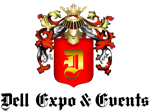
Premium Partner:
